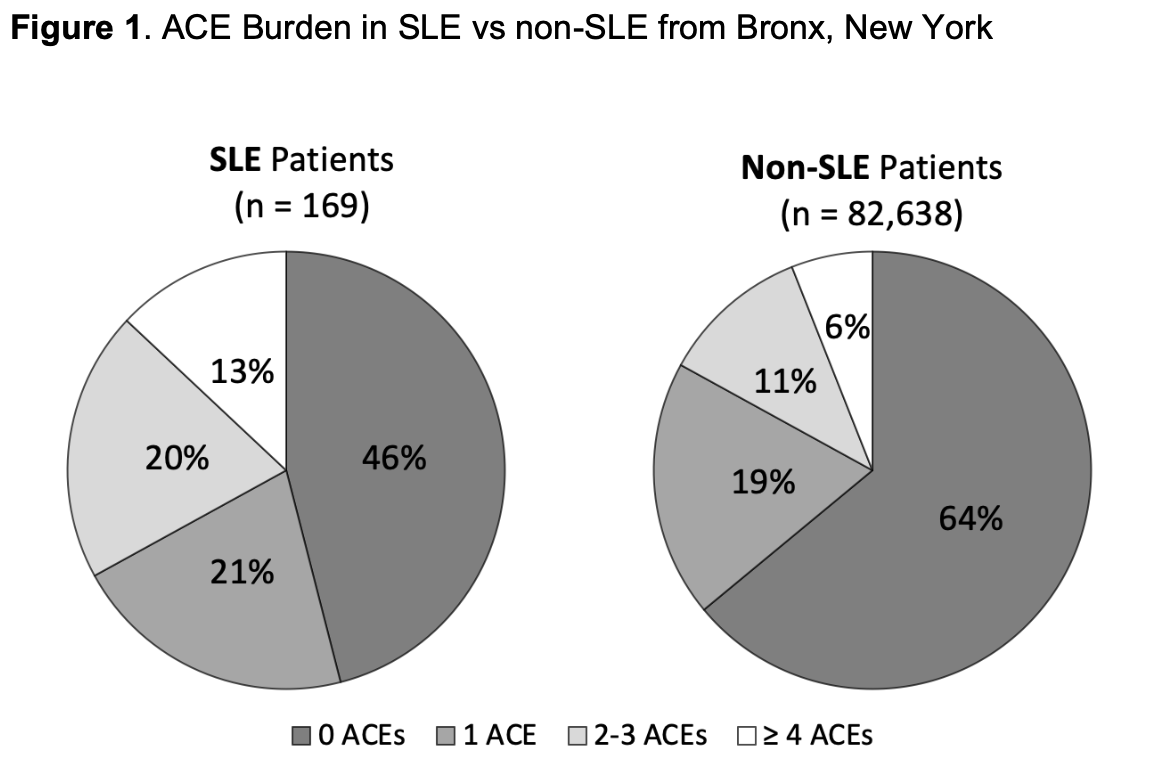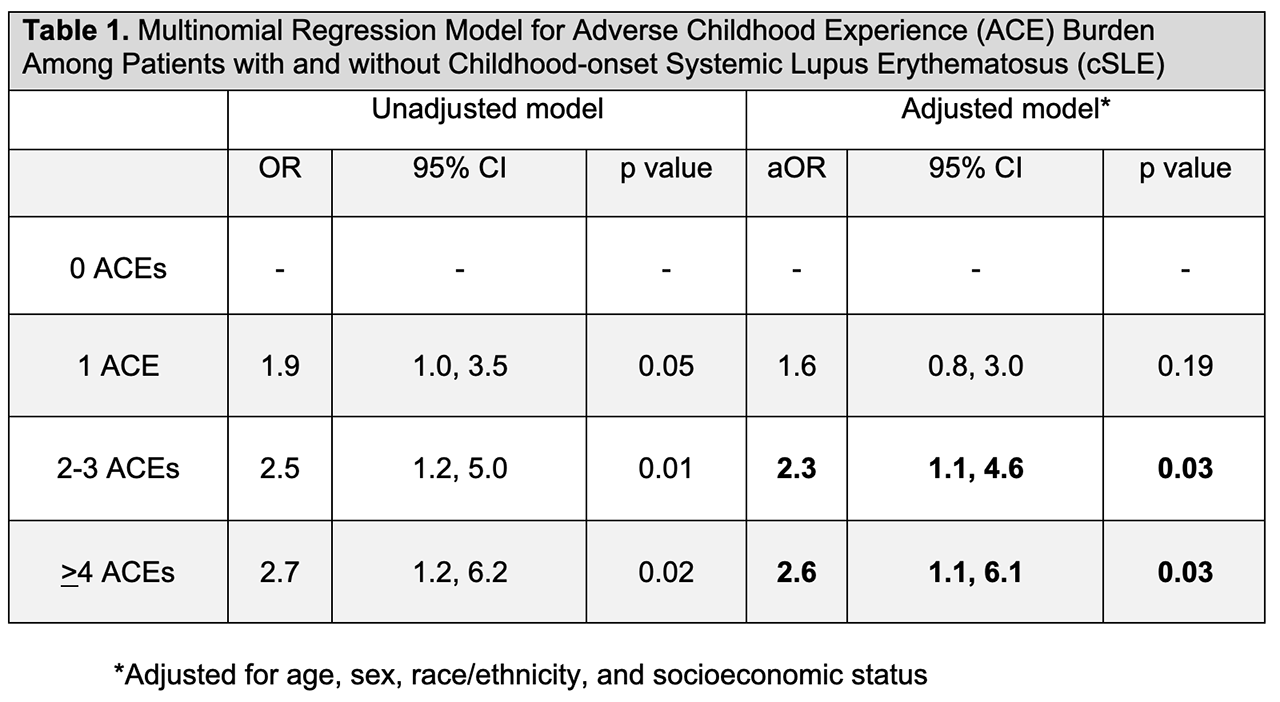Session Information
Session Type: ACR Abstract Session
Session Time: 4:30PM-6:00PM
Background/Purpose: Adverse Childhood Experiences (ACEs), which can result in chronic stress, are associated with autoimmune diseases in adulthood and arthritis in childhood. Recently ACEs were found to be associated with worse health outcomes as reported by adults with SLE in a dose-dependent manner. However, an association between ACEs and the diagnosis of SLE has not yet been demonstrated in either adult-onset or childhood-onset SLE. We aimed to determine whether ACEs are associated with SLE by examining ACE screens from patients with childhood- and adult-onset SLE compared to patients without SLE from Bronx, New York. We hypothesized that ACEs would be more common among patients with childhood-onset SLE and adult-onset SLE than those without SLE.
Methods: Using Clinical Looking Glass, a web-based software tool developed at a large, urban medical center in the Bronx, NY that allows for the extraction of patient data, we examined cross-sectional data on SLE diagnoses and ACE screenings administered at outpatient primary care and subspecialty clinics. Patients with SLE diagnoses were initially identified by billing diagnosis codes and validated by chart review to determine that they met either ACR or SLICC SLE classification criteria. We compared demographics using Pearson’s chi-square for categorical variables and the Kruskal-Wallis test for nonparametric data. We examined ACE score as a categorical variable (0, 1, 2-3, >4) between patients with and without SLE. Multinomial logistic regression models were constructed to assess for associations between categorical ACE score and the presence of childhood-onset SLE or adult-onset SLE compared to no SLE, while adjusting for potential confounders (age, sex, race/ethnicity, and socioeconomic status).
Results: Our study included 169 SLE and 82,638 non-SLE patients. Age, sex, and race/ethnicity were significantly different between the two groups (p< 0.001), while socioeconomic status was not (p=0.39). The prevalence of any ACE in the SLE group was 54% vs 36% in non-SLE patients (p< 0.001). Overall, patients with SLE had higher ACE scores than patients without (Figure 1). Adjusted multinomial logistic regression revealed that ACEs at the levels of 2-3 and >4 were significantly associated with both childhood-onset and adult-onset SLE when compared to non-SLE patients. Further, there was a graded dose-response within the childhood-onset SLE group as the degree of ACE burden increased from 1 ACE, to 2-3 ACEs, and to >4 ACEs (Table 1).
Conclusion: Similar to prior studies of arthritis and other autoimmune diseases, this study found an association between ACEs and SLE. This relationship is evident in both childhood-onset SLE and adult-onset SLE in this cohort from Bronx, NY, where social and economic disadvantage may place patients at a higher risk of developing ACEs. Understanding an association between ACEs and SLE development may elucidate biopsychosocial mechanisms for the disease. Further prospective studies should examine how ACEs impact disease development, activity, and damage.
To cite this abstract in AMA style:
Valdovinos R, Brown N, Germán M, Gao Q, Brathwaite K, Reidy K, Wahezi D, Putterman C, Stein R, Rubinstein T. Adverse Childhood Experiences Are Associated with Systemic Lupus Erythematosus in a Clinical Population from Bronx, New York [abstract]. Arthritis Rheumatol. 2019; 71 (suppl 10). https://acrabstracts.org/abstract/adverse-childhood-experiences-are-associated-with-systemic-lupus-erythematosus-in-a-clinical-population-from-bronx-new-york/. Accessed .« Back to 2019 ACR/ARP Annual Meeting
ACR Meeting Abstracts - https://acrabstracts.org/abstract/adverse-childhood-experiences-are-associated-with-systemic-lupus-erythematosus-in-a-clinical-population-from-bronx-new-york/


